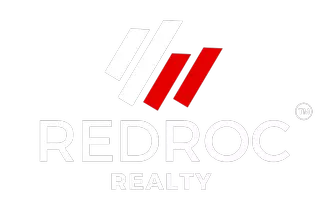Blog > The Psychology of Home Buying: What Really Influences Your Decision?
Buying a home is one of the biggest financial decisions you’ll ever make—but it’s also one of the most emotionally driven choices. From falling in love with a house at first sight to feeling attached to a specific neighborhood, the home-buying process is filled with subconscious influences that impact decision-making.
So, what really drives home-buying decisions? Is it logic, emotion, or a mix of both? Let’s break down the hidden psychology behind home buying—and how understanding these factors can lead to smarter, more confident choices.
- The Emotional Attachment: "Love at First Sight"
Many buyers know within minutes whether a home “feels right.” That’s because first impressions matter. The layout, natural lighting, curb appeal, and even the smell of a home trigger emotional responses that shape perceptions.
According to a Zillow study, 56% of buyers say they know within minutes if a home is “the one.” This instinctive reaction often leads to quick decisions, sometimes overlooking potential drawbacks.
Real-Life Example: Sarah toured a beautifully staged home in Miami Beach and immediately fell in love. The decor, lighting, and fresh-baked cookie scent made it feel perfect. But after a second visit, she realized the layout didn’t fit her long-term needs. Her agent at RedRoc Realty helped her reassess her priorities, and she found a better-fit home that she hadn't initially considered.
Solution: Before making an emotional decision, visit the home twice—once in daylight, once in the evening. Ask yourself:
- Does this home truly meet my needs?
- Am I drawn to the house itself or just the way it’s staged?
- Decision Fatigue: The More You See, The Harder It Gets
Ever felt overwhelmed after touring too many homes? That’s decision fatigue, a psychological phenomenon where too many choices reduce clarity and lead to impulsive decisions.
A Harvard Business Review study found that when faced with too many options, people struggle to compare pros and cons, leading to stress-based decision-making.
Real-Life Example: David was searching for his first home and visited 15 properties in two weeks. By the 10th tour, every house started blending together, and he felt pressured to just pick one. Instead, his agent helped him narrow down his top 5, and he was able to focus on what truly mattered.
Solution:
- Limit yourself to a structured home tour schedule—3 to 5 homes at a time.
- Keep a simple rating system (1-10) for key aspects like location, layout, and condition.
- After each tour, take notes to prevent blending details together.
- The Fear of Missing Out (FOMO) & Bidding Wars
In competitive markets, the fear of losing a home to another buyer can push people into rushed decisions. Bidding wars play into this psychology, making buyers feel like they need to act fast—even if it’s over budget.
According to Realtor.com, over 40% of homebuyers regret overpaying due to competitive pressure. Sellers and real estate agents often leverage this urgency to create emotional urgency and drive prices up.
Real-Life Example: Emily loved a home in Tampa but got caught in a bidding war. The excitement and urgency made her go $30K over her original budget. A year later, she realized she could have found a similar home for a better price if she had been patient.
Solution:
- Set a firm budget before making an offer.
- Discuss competitive pricing strategies with your agent to know when to walk away.
- Don’t let FOMO push you beyond your financial comfort zone.
- The “Forever Home” Myth
Many buyers get caught up in finding a “forever home”, when in reality, most people move every 7–10 years. This mindset can lead to overanalyzing small details and hesitating on great opportunities.
According to the National Association of Realtors (NAR) shows that 43% of buyers end up selling within 10 years. Life circumstances—career changes, family growth, or lifestyle shifts—make it unlikely that one house will be “perfect forever”.
Tip for Buyers: Instead of searching for a “forever home”, look for a home that fits your needs for the next 5-10 years and has good resale value.
- The Power of Staging & Interior Design
A staged home sells faster and for more money—why? Because design influences perception. Neutral tones, well-lit spaces, and modern furnishings make a home feel move-in ready, triggering a stronger emotional response from buyers.
A National Association of Realtors (NAR) study found that 82% of buyers’ agents said staging helped clients visualize a property as their future home.
Real-Life Example: Michael visited two homes—one staged, one empty. Even though both were similar, he felt a stronger connection to the staged home simply because it “felt like home” already.
Solution:
- Look past staging & focus on the home’s structure, layout, and long-term potential.
- If you’re a seller, consider professional staging—it can increase offers and reduce time on market.
Final Thoughts: Buying Smarter with Awareness
Understanding the psychology behind home buying can help you stay objective, reduce stress, and make smarter decisions. By balancing emotion with logic, you can find a home that truly meets your needs without falling into common psychological traps.
Don’t let emotions drive your biggest investment! Let RedRoc Realty guide you to a home that fits your lifestyle and budget.
Contact us today & start your journey!
🔗 www.redrocrealty.com
#RedRocRealty #HomeBuyingTips #RealEstatePsychology #SmartHomeBuying
